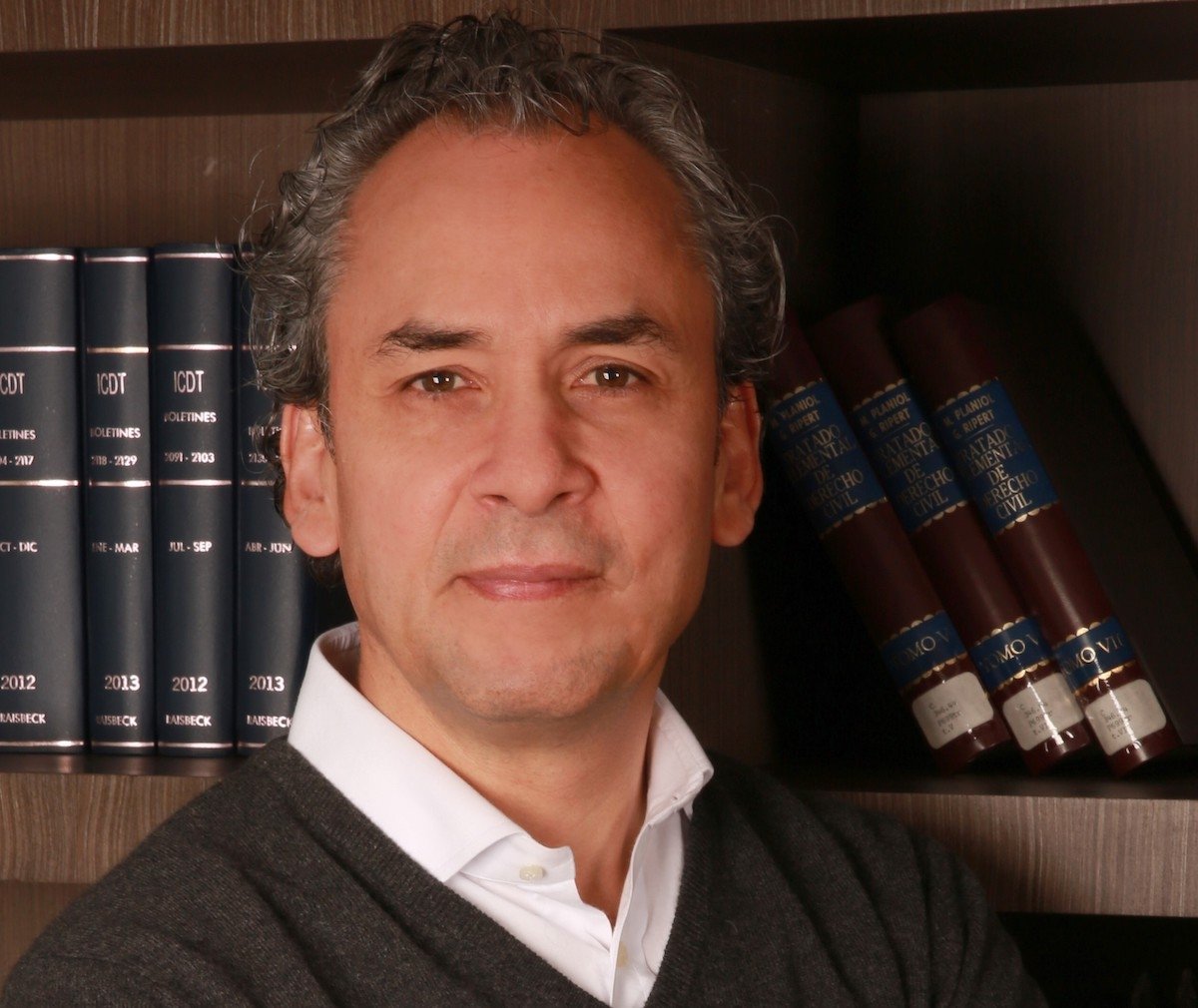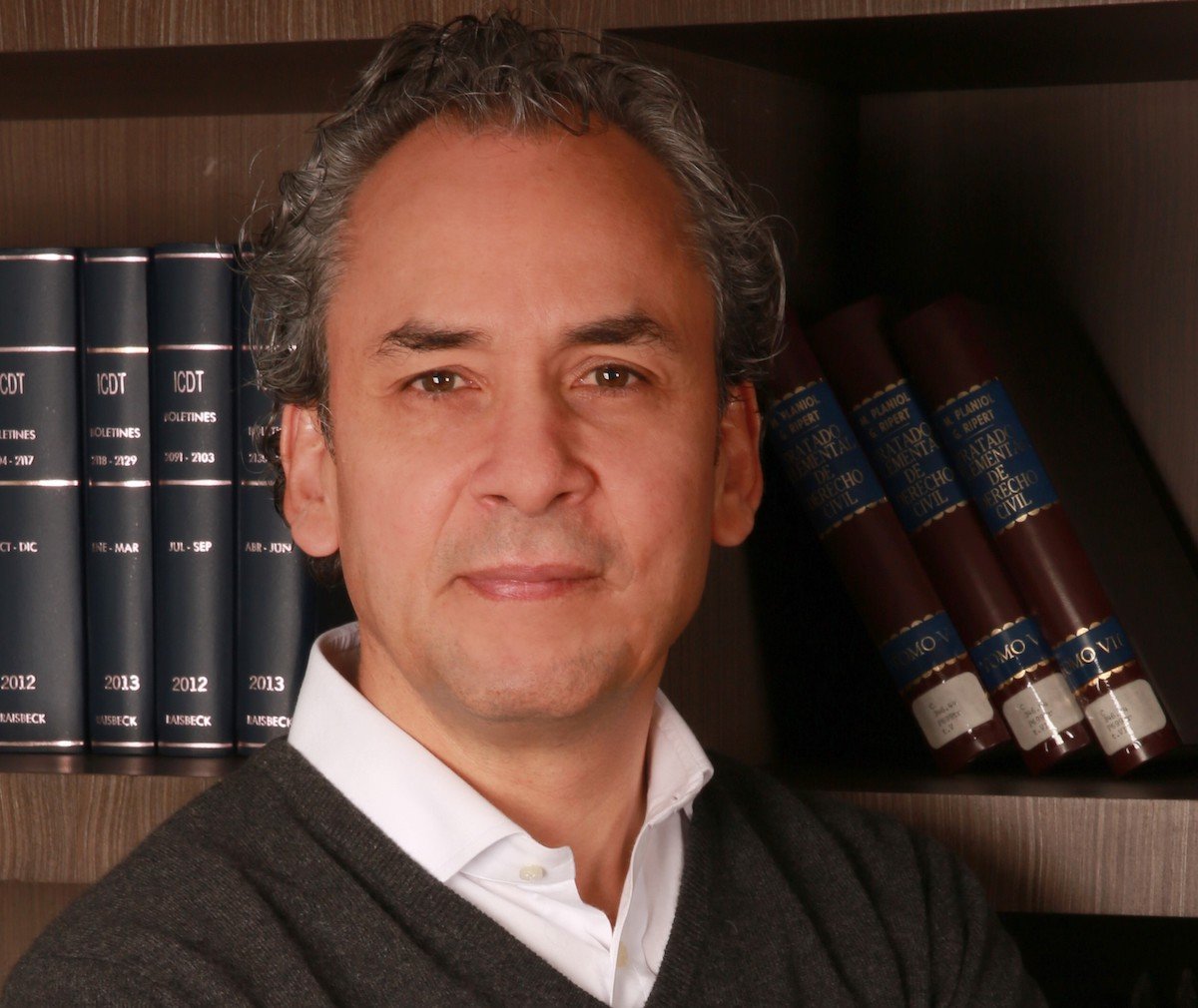Rapid response

A Q&A with Baker McKenzie’s Latin America Chair Jaime Trujillo Caicedo, on the firm’s COVID-19 Resource Centre and how the firm has adapted to clients’ changing needs during these challenging times, as well as the panorama post-pandemic.
 A member of Baker McKenzie’s global executive committee, financial committee, and chair of the Latin America region, Bogotá-based Jaime Trujillo is the firm’s managing partner in Colombia, where he joined the firm in 1985. He has advised clients on M&As, infrastructure projects and project financing, and been involved in the construction and financing of pipelines, power plants, transportation systems and telecommunications networks, as well as the privatisation of infrastructure in Colombia, Peru and Central America, and has advised on some of the largest M&A transactions in Colombia.
A member of Baker McKenzie’s global executive committee, financial committee, and chair of the Latin America region, Bogotá-based Jaime Trujillo is the firm’s managing partner in Colombia, where he joined the firm in 1985. He has advised clients on M&As, infrastructure projects and project financing, and been involved in the construction and financing of pipelines, power plants, transportation systems and telecommunications networks, as well as the privatisation of infrastructure in Colombia, Peru and Central America, and has advised on some of the largest M&A transactions in Colombia.
How has the reaction been among your clients to Baker McKenzie’s COVID-19 Resource Centre?
Clients appreciate less general email communication and more centralized resources and considered bespoke consultancy. They are being inundated by COVID-19 legal alerts and emails, and many have expressed they are happier with our approach, which has been to primarily send selective and personalised materials, and to refer clients to our Resilience, Recovery and Renewal Resource Centre, which is constantly updated. We rapidly understood that the dimensions of the global disruption across all businesses demanded a more holistic approach not only to the first effects of the crisis, but to the long-lasting impact of the pandemic. We created the Beyond Covid-19 Resource Centre based on what we call the Resilience, Recovery, and Renewal framework. This is not just a repository of information; it is a comprehensive threephase approach designed to provide clients with relevant resources and guidance to help work through the initial crisis management phase of COVID-19 and look to the future. The three ‘R’s are Resilience, the management of the immediate effects of COVID-19; Recovery, navigating the counter-cyclical activities); and Renewal, applying strategies to business transformation.
How does the resource differ from those offered by other law firms?
Our Resource Centre stands out because of a client-centric approach that highlights a path forward. The content highlights a long-term view tied to a focus on industries where clients operate to help them make informed and educated decisions about the future of their business. We have received especially positive feedback with regards to industry-focused checklists we produced very quickly, for example in relation to consumer goods and retail, healthcare and life sciences, industrials and manufacturing and aviation, as these enabled legal teams to quickly understand what the business needed immediately. As we transition to a second phase of the crisis, in some cases entering the Recovery stage, clients appreciate our forward-thinking approach that informs and guides them as they’re considering the ways to sustainably restart their businesses.
Which sectors do you see as the hardest hit by the coronavirus pandemic in Latin America?
It is difficult to find a sector that has not been hit by this pandemic. If you look at the six industry groups in which most of our clients operate – consumer goods & retail; energy, mining & infrastructure; financial institutions; healthcare; industrials, manufacturing & transportation; real estate; technology, media & telecommunications – all of them have been substantially impacted by COVID-19.
What kind of cases does the Latin America practice predominantly deal with, in ‘normal’ times, and has its focus shifted as a result of the pandemic?
In terms of our work, more than a shift in the demand of services from certain groups, we see a shift in the type of services required from each of our practice and industry groups. On transactional work, for instance, we are usually active with M&A, financing and refinancing activity. Now, we continue generating transactional work, but the focus has shifted to distressed M&A, restructuring and insolvency work. If we look at international trade, supply chains in particular, we tend to help clients in the design of their supply chains, while we are now assisting them to rethink their supply chains given emerging challenges. In intellectual property, matters related to data privacy, contact tracing have gained increasing demand. labour and employment lawyers are getting numerous inquiries about contract liability, employer obligations. Overall, our transactional, contentious and advisory groups are active, but we understandably have seen a shift in the type of services they provide.
What are your clients’ principal concerns in Latin America amid this pandemic?
At the beginning, clients’ enquiries revolved around risk mitigation and quick responses to emerging issues. During that stage, one of the solutions we created for a client was an online tool with daily legislative alerts for six jurisdictions – Argentina, Brazil, Chile, Colombia, Mexico and Peru – summarising regulatory changes and describing their impact on the client. The tool allowed the client to directly submit questions relating to 10 jurisdictions in the region: the six abovementioned countries plus Ecuador, Panama, Trinidad & Tobago, and Uruguay. Those questions were immediately forwarded to the legal team from the corresponding jurisdiction. That is one example of the legal services that were in high demand as soon as strict lockdown restrictions were put in place. Now, as we start to transition to a second phase of this crisis, we see clients becoming more focused on the mediumterm impact of COVID-19 on their businesses and how to prepare and react to a market slowdown. In our 3Rs model, this is the Recovery stage, and while clients are still concerned about immediate response to regulatory changes, they are starting to look into the potential consequences of a global economic slowdown and changes to their sectors, while adapting to an extended period of social distancing measures.
How has the law firm adapted to the need to work remotely amid the global lockdown? What lessons has the firm learned, and how could they be applied to the firm’s working methods in the future?
As a firm, we confirmed that we are well prepared to support a completely unforeseen period of massive remote work. Practically in a weekend, we shifted all employees from six jurisdictions to remote work with only minor glitches. In terms of lessons, we have learned a number of lessons from this quarantine time. Curiously, social distancing has somehow made us more connected than before. We are learning to balance out appropriate work routines, establishing a reasonable number of work hours that don’t clash with our family routines. Generally, there seems to be increasing awareness of wellbeing.
Regarding our legal practice, quarantine has left our lawyers with no other option than to become more tech-savvy. Some have learned to do virtual hearings, in front of a computer screen, for example. Others have closed deals and held complex client conversations over our video conference systems or even phone calls. We have been required to welcome innovation and that is not necessarily bad news for the firm. Courts and laws may follow suit by updating old-school practices, which would benefit the entire legal services industry. I think it’s too early to know what parts of the remote work we will adopt as regular practices. We may be more open to continue voluntarily switching some in-person meetings to video conference alternatives. I expect companies to become even more open to remote working programs.
Does Baker McKenzie’s recent hiring in its global restructuring and insolvency practice of three renowned names in the field, Mark Bloom, Paul Keenan and John Dodd, respond to an anticipated increase in asset sales/bankruptcies/ restructuring by clients in Latin America as a consequence of the coronavirus? Or were those additions part of the firm’s plans to grow the Latin America practice?
Before the pandemic, we were already anticipating a global economic slowdown, and in response to that we wanted to strengthen our restructuring and insolvency group. The hiring of Mark Bloom, Paul Keenan and John Dodd was part of that long-term strategy. Based in Miami, we expect them to be involved in cross-border work, especially with Latin America. Paul has extensive experience in the region. However, the decision of their hiring was made prior to the pandemic, but we are certainly pleased to count on their expertise, particularly during this crisis. We are expecting the pandemic to impact global industries and economies for years to come.
Which is the strongest jurisdiction for the firm in Latin America, in terms of providing the largest revenue?
Brazil is our biggest market, and there we have a strategic cooperation with Trench Rossi Watanabe, one of the country’s largest law firms. We are well established in the rest of the main economies of the region, Argentina, Chile, Colombia, Mexico, Peru and Venezuela.
How important a part of the business is the Latin America practice for Baker McKenzie?
Our Latin America operation punches above its weight: its contribution to the firm is greater than the size of the region’s economic output, compared to the global economy. In our last fiscal year, to endJune 2019, Latin America reported a growth of 9% compared to fiscal year 2018, leading our other global regions. By then, Bogotá and Buenos Aires were highlighted as standout markets with doubledigit growth.
Moving past the pandemic, does the firm expect to see an increase in M&A activity in Latin America, and are you seeing companies begin to take action in this regard?
We expect there to be an increase in M&A activity after the pandemic. At the beginning there will be more activity in distressed M&A, and then once the economy stabilises, we expect the sector to return even stronger. Companies are taking action to guarantee the viability of their business. They are adapting to the “new normal” of doing business by thinking of new ways or channels to improve revenue and review their budgets to make them as efficient as possible.
Has the pandemic forced any change in the law firm’s plans or strategy in Latin America?
The pandemic has not forced changes in our strategy: it has validated it. We continue to focus on our two pillars: clients and people. Our firm is responding to the current circumstances with different tactics perhaps, but always with the same strategic priorities in mind. We continue strengthening our industry focus, which will prove to be the right approach, especially during and after the pandemic, as a way to anticipate emerging challenges for our clients.















